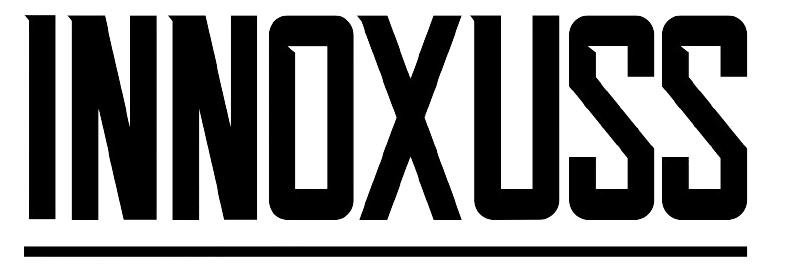Anúncios
In the digital era where technology is evolving at a rapid pace, the importance of cybersecurity cannot be overstated. With an increase in cyber threats and attacks, there’s a growing need for robust measures to protect sensitive information and maintain the integrity of systems. This post delves into the realm of ethical hacking, a powerful tool in the fight against cybercrime, as it provides a deep understanding of potential vulnerabilities from a hacker’s perspective.
Unleashing the power of ethical hacking can be instrumental in enhancing cybersecurity. Unlike malicious hackers who infiltrate systems with ill intentions, ethical hackers use their skills to identify and fix vulnerabilities, acting as a valuable line of defense. This approach is increasingly being recognized as an effective way of proactively protecting systems and data.
Anúncios
This guide aims to shed light on the techniques and tactics of ethical hacking, providing insights into its methodology, the skills required, and the benefits it can bring. From penetration testing to social engineering, it offers a comprehensive look at various ethical hacking strategies, their implementation, and how they can bolster cybersecurity measures.
In the forthcoming sections, we will explore the ethical hacking landscape, its critical role in modern cybersecurity, and how organizations can harness its power. A better understanding of ethical hacking not only helps in mitigating cyber threats but also empowers individuals and organizations to create a safer digital environment. So let’s delve into this fascinating world and discover the potential of ethical hacking in advancing cybersecurity.
Anúncios
Understanding the Concept of Ethical Hacking
In the realm of cybersecurity, ethical hacking serves as the knight in shining armor, providing a robust defense mechanism against malicious attacks. The term “ethical hacking” may seem like an oxymoron at first glance—after all, how can hacking ever be ethical? However, in today’s rapidly evolving digital world, it has become one of the most essential tools in the fight against cybercrime. Ethical hackers, also known as white hat hackers, use their skills and expertise to locate and fix vulnerabilities in a system, rather than exploiting them for personal gain or malicious purposes.
Ethical hacking is a proactive approach to cybersecurity. Rather than waiting for a cyberattack to expose system weaknesses, organizations now enlist ethical hackers to simulate attacks and identify vulnerabilities before actual cybercriminals can exploit them. This forward-thinking strategy is known as penetration testing or “pen testing.” Through this method, ethical hackers assess the strength of existing security protocols, identify loopholes, and recommend improvements. Their role is similar to that of a security consultant—but with a deeper understanding of how attackers think and operate.
What sets ethical hacking apart is its legitimacy and intent. While black hat hackers act illegally to steal data, disrupt systems, or cause damage, ethical hackers operate within legal boundaries, often under formal contracts or employment. They must obtain explicit permission before engaging in any testing. Operating without such permission—even with good intentions—can still be classified as illegal activity and is therefore strictly avoided in professional ethical hacking practices.
One of the primary skills ethical hackers must possess is a thorough understanding of operating systems, programming languages, and networking concepts. This knowledge enables them to think like a hacker, anticipate possible entry points, and formulate effective countermeasures. But technical proficiency alone isn’t enough. Ethical hackers also need to stay updated with the latest threat intelligence. Cybersecurity threats evolve constantly—new malware, phishing techniques, ransomware variants, and zero-day vulnerabilities emerge all the time. An ethical hacker must maintain a sharp learning curve to stay ahead of malicious hackers.
Equally important is the ethical framework guiding their work. Integrity, confidentiality, and respect for privacy are the cornerstones of ethical hacking. Professionals in this field are expected to adhere to codes of conduct and industry standards, such as those outlined by EC-Council (Certified Ethical Hacker certification) or CompTIA Security+. These organizations offer certifications and training that verify a hacker’s credibility, skills, and adherence to ethical practices.
Additionally, ethical hackers often operate as part of a broader cybersecurity team. They collaborate with system administrators, developers, legal teams, and compliance officers to ensure that systems remain secure and compliant with regulatory standards. Their findings may influence critical decisions, including infrastructure upgrades, policy changes, and incident response planning.
Ethical hacking also extends to the testing of hardware devices and Internet of Things (IoT) systems. As more everyday objects become interconnected through smart technology—think home security systems, wearable health devices, and connected vehicles—the potential attack surface increases exponentially. Ethical hackers step in to ensure that these devices do not become easy entry points for attackers seeking to compromise broader systems.
Moreover, ethical hacking isn’t just for large corporations. Small businesses, non-profits, educational institutions, and even government agencies can benefit from ethical hacking services. In fact, as smaller organizations often lack the robust cybersecurity budgets of larger entities, they may be more vulnerable to attacks. Ethical hackers can provide these organizations with tailored insights, affordable testing solutions, and practical advice to improve their digital defenses.
In summary, ethical hacking is no longer a niche specialty—it’s a critical component of any comprehensive cybersecurity strategy. It bridges the gap between offense and defense, using the mindset of a hacker to build stronger, safer digital environments. By understanding and embracing ethical hacking, organizations and individuals alike can better prepare for the threats of tomorrow while protecting the assets of today.
The Role of Ethical Hackers
Ethical hackers play a vital role in maintaining the integrity and safety of information systems. Their primary task is to perform penetration tests – a simulated cyber attack on a computer system, network or web application to identify security vulnerabilities that a hacker could exploit. Apart from this, ethical hackers are responsible for creating security policies, conducting security audits, and implementing prevention measures.
Importance of Ethical Hacking in Cybersecurity
In today’s digital age, ethical hacking is more important than ever. With the rise in cyber threats, companies and individuals need to take proactive steps to protect their data. The process of ethical hacking allows for the identification and remediation of vulnerabilities before they can be exploited by cybercriminals.
Enhancing System Security
By simulating attacks, ethical hackers can identify potential weaknesses in a system’s defenses. These vulnerabilities, once identified, can be fixed, thereby enhancing the system’s security. Without this process, these vulnerabilities could be exploited by malicious hackers, resulting in significant damages, both financial and reputational.
Implementing Ethical Hacking Practices
Implementing ethical hacking practices involves numerous steps. Firstly, the ethical hacker should obtain legal permission to probe the network and attempt to identify potential security risks.

Penetration Testing
Penetration testing, also known as pen testing, is a crucial part of ethical hacking. It involves simulating cyber-attacks to assess the security of a system. The tests can be performed using automated tools or manually by the ethical hacker.
Vulnerability Assessment
Another important aspect of ethical hacking is conducting vulnerability assessments. These assessments involve identifying, quantifying, and prioritizing vulnerabilities in a system.
Tools Used in Ethical Hacking
Ethical hacking involves the use of various tools to perform security audits and penetration tests.
- Nmap: Also known as Network Mapper, this free and open-source tool is used for network discovery and security auditing.
- Wireshark: This is a network protocol analyzer used for troubleshooting, analysis, development, and education.
- Metasploit: A powerful tool used for penetration testing, it helps in identifying vulnerabilities in a system.
- Burp Suite: This is a web application security testing platform.
Mastering Ethical Hacking Tools
Mastering these tools is a critical step in becoming an efficient ethical hacker. Each of these tools offers unique functionalities that aid in the process of identifying vulnerabilities and securing systems.
Challenges in Ethical Hacking
Like any other field, ethical hacking comes with its set of challenges. One of the significant challenges is the rapid evolution of technology and, with it, new vulnerabilities. As organizations adopt cutting-edge technologies such as cloud computing, artificial intelligence, blockchain, and the Internet of Things (IoT), the attack surface for potential cyber threats expands considerably. This constant technological evolution requires ethical hackers to stay up to date with the latest tools, trends, and threat landscapes to remain effective in identifying and mitigating new security risks.
Another major hurdle is the complexity and sophistication of modern-day cyberattacks. Cybercriminals are not only increasing in number but also becoming more organized and strategic. From advanced persistent threats (APTs) to zero-day exploits and polymorphic malware, the nature of cyberattacks is constantly evolving. Ethical hackers must be prepared to anticipate and simulate such complex threats, which demands a high level of technical expertise and ongoing education.
Legal and ethical boundaries also present unique challenges. Ethical hackers must always obtain proper authorization before conducting any testing or analysis. Without clearly defined scopes of engagement or contractual agreements, even well-intentioned actions can be deemed illegal. Navigating these legal frameworks can be difficult, especially in different countries where cybersecurity laws vary significantly. Misunderstandings or ambiguous permissions can expose ethical hackers to legal liability, emphasizing the importance of working within a clearly defined ethical and legal framework.
Resource constraints are another common challenge, particularly for ethical hackers working with smaller organizations. Limited budgets, outdated systems, and a lack of awareness or investment in cybersecurity can hinder the implementation of effective testing and remediation strategies. Even when vulnerabilities are identified, organizations may delay or avoid taking corrective action due to cost concerns or operational disruptions. This can be frustrating for ethical hackers, who are committed to improving security but are limited by organizational inertia.
There is also the issue of trust. Ethical hackers must build strong relationships with stakeholders, including IT teams, executives, and legal advisors. Miscommunication, skepticism, or fear of exposure can sometimes lead to resistance within organizations. It is essential for ethical hackers to demonstrate professionalism, transparency, and reliability to earn and maintain trust. Establishing clear reporting processes, confidentiality agreements, and educational sessions can help bridge the gap between ethical hackers and the organizations they support.
Another noteworthy challenge lies in the vast amount of data ethical hackers must sift through. As systems and networks become more complex, ethical hackers are often faced with analyzing enormous volumes of logs, configurations, and code. This requires not only technical skill but also analytical thinking, attention to detail, and time management. Automation tools can help, but ethical hackers still need to interpret results and make informed decisions about the severity and relevance of each vulnerability.
Finally, ethical hackers often face burnout due to the demanding nature of their work. The high-pressure environment, continuous learning curve, and the constant need to stay ahead of malicious attackers can lead to stress and fatigue. Many ethical hackers work long hours, particularly during penetration testing or incident response periods, which can take a toll on their mental and physical well-being. Promoting work-life balance, mental health awareness, and supportive team cultures is essential for sustaining the ethical hacking profession.
In summary, while ethical hacking is a critical pillar in the defense against cyber threats, it comes with a unique set of challenges. From keeping pace with evolving technology and navigating legal frameworks to managing resources and maintaining mental health, ethical hackers must overcome multiple hurdles to succeed. Addressing these challenges through continuous learning, collaboration, ethical rigor, and organizational support is key to ensuring the long-term effectiveness and sustainability of ethical hacking in the cybersecurity landscape.
Keeping Pace with Evolving Threats
To keep up with the ever-evolving cyber threats, ethical hackers need to be on their toes, continually learning and updating their skills. This includes staying abreast with the latest hacking techniques, understanding new technologies, and mastering the use of the latest security tools.
Legal and Ethical Considerations
Another challenge faced by ethical hackers is the legal and ethical considerations. Ethical hackers must always operate within the law, which means obtaining the necessary permissions before conducting any hacking activities.
The Future of Ethical Hacking
Ethical hacking has a promising future, given the increasing dependence on digital systems and the rise in cyber threats. As long as there are systems to protect, there will be a need for ethical hackers.

Trends in Ethical Hacking
Looking at the future, we can expect several trends in the field of ethical hacking. These include an increased emphasis on cloud security, the growing importance of artificial intelligence in security, and the rise of machine learning techniques for identifying and fixing vulnerabilities.
Overall, ethical hacking serves as a potent tool in the arsenal against cyber threats. With their expertise and skills, ethical hackers can identify vulnerabilities and help secure digital assets, thereby playing an indispensable role in the world of cybersecurity.
Conclusion
In conclusion, “Unleashing the Power of Ethical Hacking: A Guide to Understanding and Implementing Cybersecurity Measures” offers an invaluable resource for those seeking to safeguard their digital assets. The article underscores the vital role that ethical hackers play in identifying vulnerabilities, thus bolstering cybersecurity measures. It further emphasizes the need for continuous learning and adaptation in the face of ever-evolving cyber threats.
However, the implementation of ethical hacking should be carried out with caution, following strict ethical guidelines and legal boundaries. Organizations must ensure a balance, promoting a culture of security without hampering innovation or infringing on privacy rights. The guide also encourages organizations to invest in cybersecurity education for their teams, fostering a proactive approach to digital security.
In the age of digital transformation, the importance of robust cybersecurity measures cannot be overstated. Ethical hacking emerges as a potent tool in this fight against cybercrime. By embracing these practices, organizations can not only protect their data but also gain a competitive edge in today’s digital landscape.
Therefore, ‘Unleashing the Power of Ethical Hacking’ serves as a clarion call to all stakeholders in the digital ecosystem to rethink their cybersecurity strategies, invest in ethical hacking, and fortify their defenses for a secure digital future.


